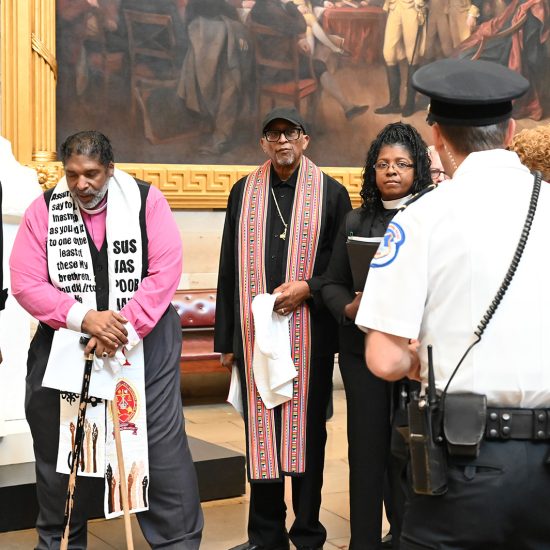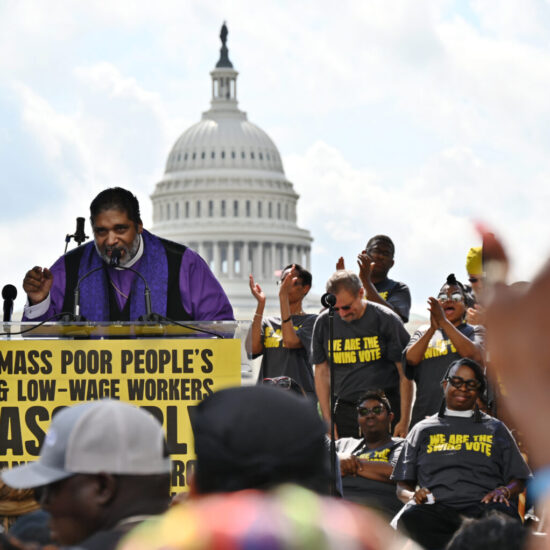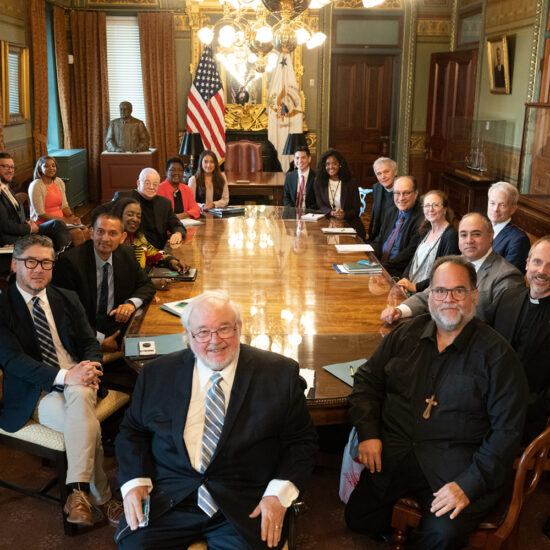NEW YORK (ABP) — World leaders voiced deep concern about the impact of the worst economic downturn since the Great Depression on international anti-poverty goals at a three-day summit at the United Nations Sept. 20-22.
An outcome document for the U.N. Summit on the Millennium Development Goals recognizing significant efforts in developing countries in the 10 years since world leaders adopted the 15-year plan to alleviate poverty and hunger in the developing world. With just five years remaining, progress remains uneven among countries.
The report said hunger and malnutrition rose between 2007 and 2009, partially reversing earlier gains. Progress toward creating jobs, gender equality and empowerment of women, achieving environmental sustainability and HIV/AIDS reduction has been slow.
"In particular, we express grave concern over the slow progress being made on reducing maternal mortality and improving maternal and reproductive health," the document reads. "Progress on other Millennium Development Goals is fragile and must be sustained to avoid reversal."
Three years ago the Cooperative Baptist Fellowship officially endorsed the Millennium Development Goals, but the group's global mission focus has long been on ministry to the world's most marginalized peoples.
The Atlanta-based CBF offers a free downloadable resource titled 8 Ways to Change the World spotlighting how the work of field personnel aligns with the eight Millennium Development Goals. The goals are to eradicate extreme poverty and hunger; achieve universal primary education; promote gender equality and empower women; reduce child mortality; improve maternal health; combat HIV/AIDS, malaria and other diseases; ensure environmental sustainability and develop a Global Partnership for Development.
The Baptist World Alliance is a partner in Micah 2010, a goal for 100 million Christians to pray the same prayer, make 10 million promises to remember the poor and remind 1,000 political leaders to take action on poverty commitments made through the Millennium Development Goals. The Oct. 10 emphasis — chosen for the date 10/10/10 — is to remind nations that only five years remain to make their promises a reality.
The event's sponsor, the Micah Challenge, is a global network of 330 Christian relief, development and justice agencies around the world and the World Evangelical Alliance, which embraces 420 evangelical Christians in 127 countries.
"At a time when the world has shown unprecedented interest in poverty reduction, it would be a sad indictment of the church if we were to become invisible or silent on the subject," Joel Edwards, international director of Micah Challenge International said in a blog about the UN summit.
"Our advocacy and our quiet actions should be lights on a hill," Edwards wrote. "And more than anything else, our responses to the poor offer us an opportunity to become visible sign posts of God at work in the world."
President Obama announced a new United States global-development policy at the summit — the first of its kind by an American administration.
The new policy changes the way the government defines development. "For too long, we've measured our efforts by the dollars we spent and the food and medicines that we delivered, but aid alone is not development," the president said. "Development is helping nations to actually develop — moving from poverty to prosperity."
Obama said the government has to break cycles of dependency created by millions of people who have relied on food assistance for decades. "The purpose of development — what's needed most right now — is creating the conditions where assistance is no longer needed," he said. "So we will seek partners who want to build their own capacity to provide for their people. We will seek development that is sustainable."
The new policy looks to long-range solutions like broad-based economic growth and insisting in responsibility and mutual accountability.
"For our part, we'll work with Congress to better match our investments with the priorities of our partner countries," Obama said. "Guided by the evidence, we will invest in programs that work; we'll end those that don't."
"We need to be big-hearted but also hard-headed in our approach to development," he said.
-30-
Bob Allen is senior writer for Associated Baptist Press.






